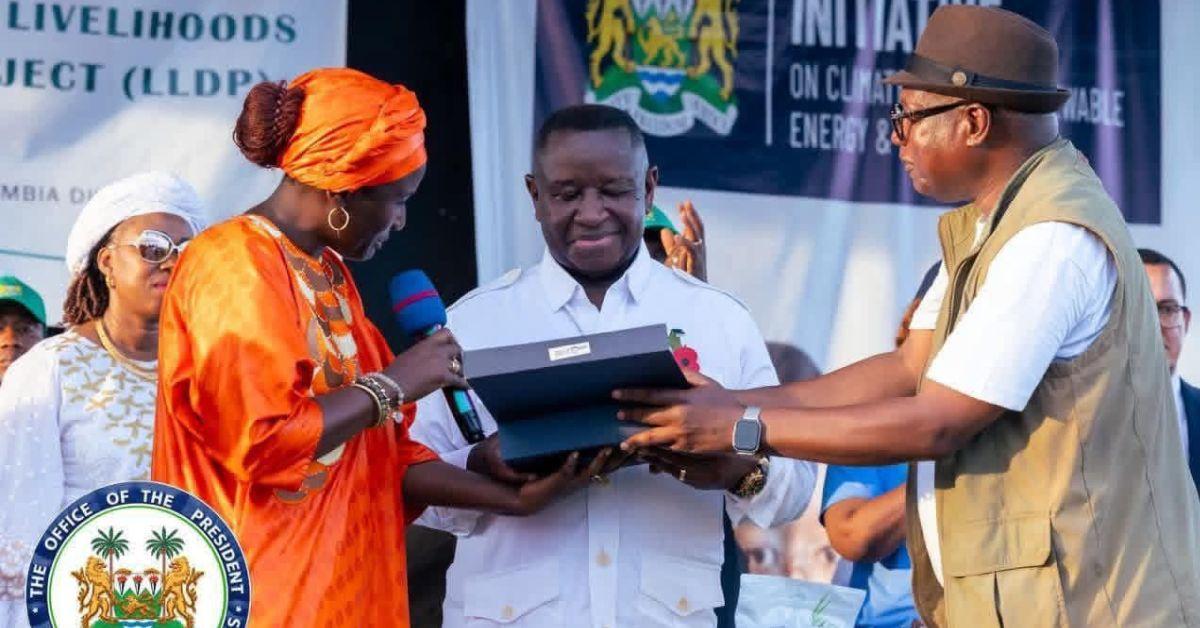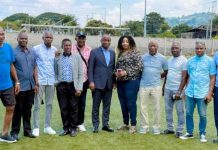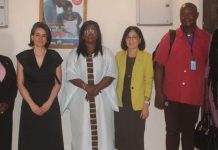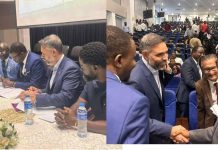Africa-Press – Sierra-Leone. Two years after the launch of President Julius Maada Bio’s flagship Feed Salone initiative, the conversation around Sierra Leone’s dream of food self-sufficiency is once again at the national table this time, seasoned with optimism, scrutiny, and a simple but powerful question from citizens: “When will we begin to eat the rice and meat?”
At a colourful ceremony in Kambia District, attended by farmers, paramount chiefs, and international partners, President Bio celebrated two years of Feed Salone under the global World Food Day theme “Hand in Hand for Better Food and a Better Future.” The event also marked the unveiling of the Feed Salone Two-Year Progress Report and the launch of a new $105 million Livestock and Livelihood Development Project.
President Bio described agriculture as “the heartbeat of our nation,” and reaffirmed that Feed Salone is designed to transform farming from a survival activity into a pathway of prosperity.
“Two years ago, we launched Feed Salone with a clear message: Grow what we eat and eat what we grow,” he said. “Today, the results are visible rice production is rising, imports are declining, and local food is becoming more available and affordable.”
For the president, this was more than a policy update it was personal. He recalled his childhood experiences of rural farming and how agriculture sustained his family and community. But beneath the applause and optimism, the question many Sierra Leoneans are asking is whether these gains are translating into real food on the table.
One of the major announcements of the day was the launch of a $105 million Livestock and Livelihood Development Project, jointly funded by the Islamic Development Bank (IsDB), IFAD, and the OPEC Fund.
The project aims to boost poultry and cattle farming, expand feed production, and increase rural incomes in the northern districts of Kambia, Port Loko, and Bombali areas long recognized as Sierra Leone’s agricultural heartland.
If successfully implemented, the initiative could reduce the country’s heavy reliance on imported chicken, beef, and eggs, creating jobs and helping families eat better and cheaper. Yet, for rural farmers, access to financing, tools, and veterinary services remains a daily struggle. Many still farm with cutlasses, hoes, and hope.
Government data shows that local rice production has increased, and food imports have dropped slightly, but market prices tell a more complex story. A 50kg bag of local rice still costs nearly the same as imported brands, and meat remains a luxury for most households.
The irony is hard to miss: a nation celebrating food production milestones while citizens still ask, “When will we begin to eat the rice and meat?”
Economic analysts argue that Feed Salone’s success must be measured not just in tonnage or hectares cultivated but in affordability, availability, and nutrition. Food security, they say, is not just about producing enough it’s about ensuring that ordinary citizens can afford to eat what they produce.
In Kambia’s farming communities, the celebration was filled with both pride and quiet caution. Many farmers say they have seen positive changes more access to seeds, fertilizers, and training but also stress that logistics, irrigation, and market access remain major obstacles.
“We can grow, but getting our rice to the market is the problem,” said one farmer from Rokupr. “Sometimes the crops rot before buyers arrive.”
The newly launched Rural Farmers Radio 98.9 FM aims to bridge this gap by sharing agricultural information, weather alerts, and success stories across the regions. But as one listener put it, “Information alone cannot till the land.”
Speaking on behalf of the Islamic Development Bank, Mr. Omar Davis, Country Operations Manager, praised Sierra Leone’s progress in agricultural reform.
“The partnership between the IsDB and Sierra Leone now exceeds $500 million in cumulative approvals, with $255 million currently active,” he stated. “The last five years have recorded more approvals than nearly six decades before 2020 showing confidence in Sierra Leone’s reform path.”
This foreign confidence is a strong vote of trust, but expectations at home remain high. Citizens want to see these investments reflected in reduced food prices, job creation, and improved nutrition.
Feed Salone is one of the Big Five Game Changers in President Bio’s development blueprint and arguably the most visible because food touches every home.
Yet, as Sierra Leone marks two years of implementation, the challenge is ensuring that Feed Salone grows beyond a policy slogan into a people’s experience one that puts rice in the pot and meat on the plate.
Because for all the speeches and statistics, the true measure of success will not be found in reports or launch ceremonies but in the daily meals of ordinary Sierra Leoneans.
President Bio’s Feed Salone initiative has made measurable strides and attracted unprecedented international investment. But to truly feed the nation, Sierra Leone must go beyond celebration to delivery, ensuring that the farmer in Kambia, the mother in Kailahun, and the student in Freetown all feel the impact
Until then, the question remains on every citizen’s lips “When will we begin to eat the rice and meat?”
For More News And Analysis About Sierra-Leone Follow Africa-Press






